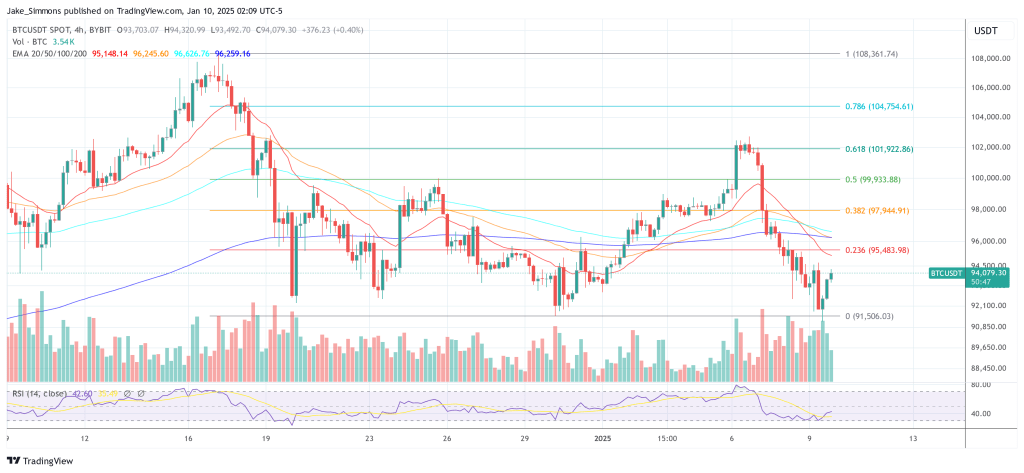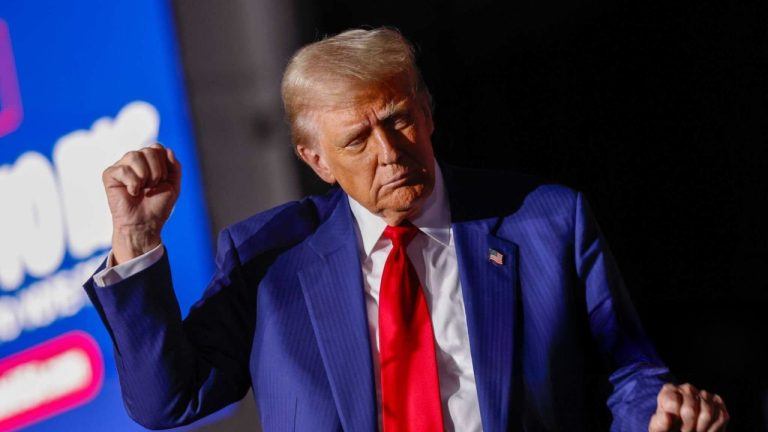
China’s ban on cryptocurrencies causes a mild slump, but recovering from this FUD is not new for crypto as China’s motives come under the scanner.
Chinese regulatory authorities gave yet another shock to the cryptoverse by imposing a ban on all cryptocurrency transactions on Sept. 24. This measure came just as the market was beginning to recover from the government's June prohibition on cryptocurrency mining activities.
The fear, uncertainty and doubt (FUD) that resulted from the ban caused Bitcoin (BTC) to crash nearly 9% within five hours, from exchanging hands in the $45,000 range to bottoming out at $41,142. Soon after, Alibaba announced that it would be banning any sale of cryptocurrency rigs and related accessories starting Oct. 8.
However, the flagship cryptocurrency has since recovered to trading above pre-ban levels of around $45,000. At the time of writing, BTC is exchanging hands in the $47,300 range. This recovery could be on the back of two favorable developments: the chairman of the United States Federal Reserve, Jerome Powell, mentioning that there is no intent to ban Bitcoin or cryptocurrencies in the United States and Iran’s lifting of its temporary Bitcoin mining ban.
This is not the first time that BTC or the market as a whole has recovered from FUD caused by China. As per an analysis by Cointelegraph, the cryptoverse has bounced back from China’s crypto bashing over a dozen times. This instance marks another of these inevitable recoveries.
In addition to the falling price of tokens as an immediate consequence of the ban, the long-term impact on crypto businesses and investors in China is enormous. Huobi Global, the most widely used cryptocurrency exchange in China by trading volumes, immediately stopped crypto transactions for its Chinese investors per the regulator’s guidelines.
Additionally, the exchange outlined a plan for their users in China that ensures users can safeguard their assets before their accounts are permanently closed on Dec. 3. Du Jun, a co-founder of Huobi Global cryptocurrency exchange told Cointelegraph on the matter:
“Customers will be able to transfer their assets to other exchanges or wallets over the next few months. If customers don’t or cannot see our latest announcements, we will provide other ways to protect customer assets and wait for them to be withdrawn.”
In contrast to the previous instances in which China has thrown shade on cryptocurrencies or announced “bans,” this time there seems to be no gray area or loopholes that allow crypto businesses to continue to offer their services in the country.
China’s motive
As is the case with many countries, China's hostility toward crypto seems to juxtapose the promotion of its own central bank digital currency (CBDC), the digital yuan.
Ariel Zetlin-Jones, associate professor of economics at Carnegie Mellon University’s Tepper School of Business, told Cointelegraph:
“China clearly wants to promote the digital Yuan. Removing its competitors by banning crypto activities is one way to do this so it seems reasonable to consider this motivation as one rationale for their policies.”
Kristin Boggiano, co-founder and president of cryptocurrency exchange CrossTower, told Cointelegraph: “China seems to be choosing control over innovation, and its actions indicate that crypto could be a threat to the digital yuan as much of crypto is permissionless.”
The government has been pushing its CBDC initiative throughout various provinces to the extent that the Xiaong’an New Area enabled the country’s first blockchain-based salary transaction in June this year.
This shows immense belief and commitment to the digital currency initiative, as compared to other major economies where the point of discussion is still around the safety and reliability of digital currencies. Thus, this move could definitely be an effort to curb the proliferation of “private” cryptocurrencies and push users in China toward the digital yuan.
China’s loss, America's gain?
Huobi's Jun further mentioned that, since the exchange has been expanding its footprint across various countries in recent years, business outside of China already accounts for nearly 70% of the firm's entire portfolio.
In July, after a series of crackdowns on Bitcoin mining in China, the Bitcoin mining difficulty was impacted immediately, dropping 30%. Zetlin-Jones said similar outcomes are now emerging on the Ethereum blockchain where large Ether (ETH) mining pools in China are now going offline. Zetlin-Jones continued:
“The reduction in mining difficulty reduces the entry costs for mining and creates opportunity for new entrants to mining. While I believe this could be beneficial in driving decentralization in mining, it is unclear this is an opportunity for the U.S. in particular.”
Charles Allen, CEO of BTCS Inc. — a publicly-traded company offering blockchain infrastructure — remains optimistic. He told Cointelegraph: “Blockchain technologies have the power to change the world in the same way the internet did. Simply put, they are the future of finance and beyond.”
Allen said that if China doesn’t want a hand in development and innovation, it is 100% an opportunity for the United States in the long run.
Related: Crypto community concerned over impact of infrastructure bill on DeFi
U.S. Senator Pat Toomey is of a similar opinion, writing on Twitter, “China’s authoritarian crackdown on crypto, including #Bitcoin, is a big opportunity for the U.S. It’s also a reminder of our huge structural advantage over China.”
The opportunity for the United States and other major economies here is huge, as various sectors of crypto businesses, like exchanges and mining, need to relocate out to China and thus, would contribute to the surrounding economy with employment opportunities and a consistent capital flow.
Even though there is absolute clarity about the law for crypto business and services, individual investors and cryptocurrency holders are still uncertain about whether the possession of cryptocurrencies is illegal. Boggiano claimed that, even though China-based investors cannot transact in cryptocurrencies over exchanges, the over-the-counter access to the crypto market remains relatively unaffected.

You can get bonuses upto $100 FREE BONUS when you:
💰 Install these recommended apps:
💲 SocialGood - 100% Crypto Back on Everyday Shopping
💲 xPortal - The DeFi For The Next Billion
💲 CryptoTab Browser - Lightweight, fast, and ready to mine!
💰 Register on these recommended exchanges:
🟡 Binance🟡 Bitfinex🟡 Bitmart🟡 Bittrex🟡 Bitget
🟡 CoinEx🟡 Crypto.com🟡 Gate.io🟡 Huobi🟡 Kucoin.

















Comments